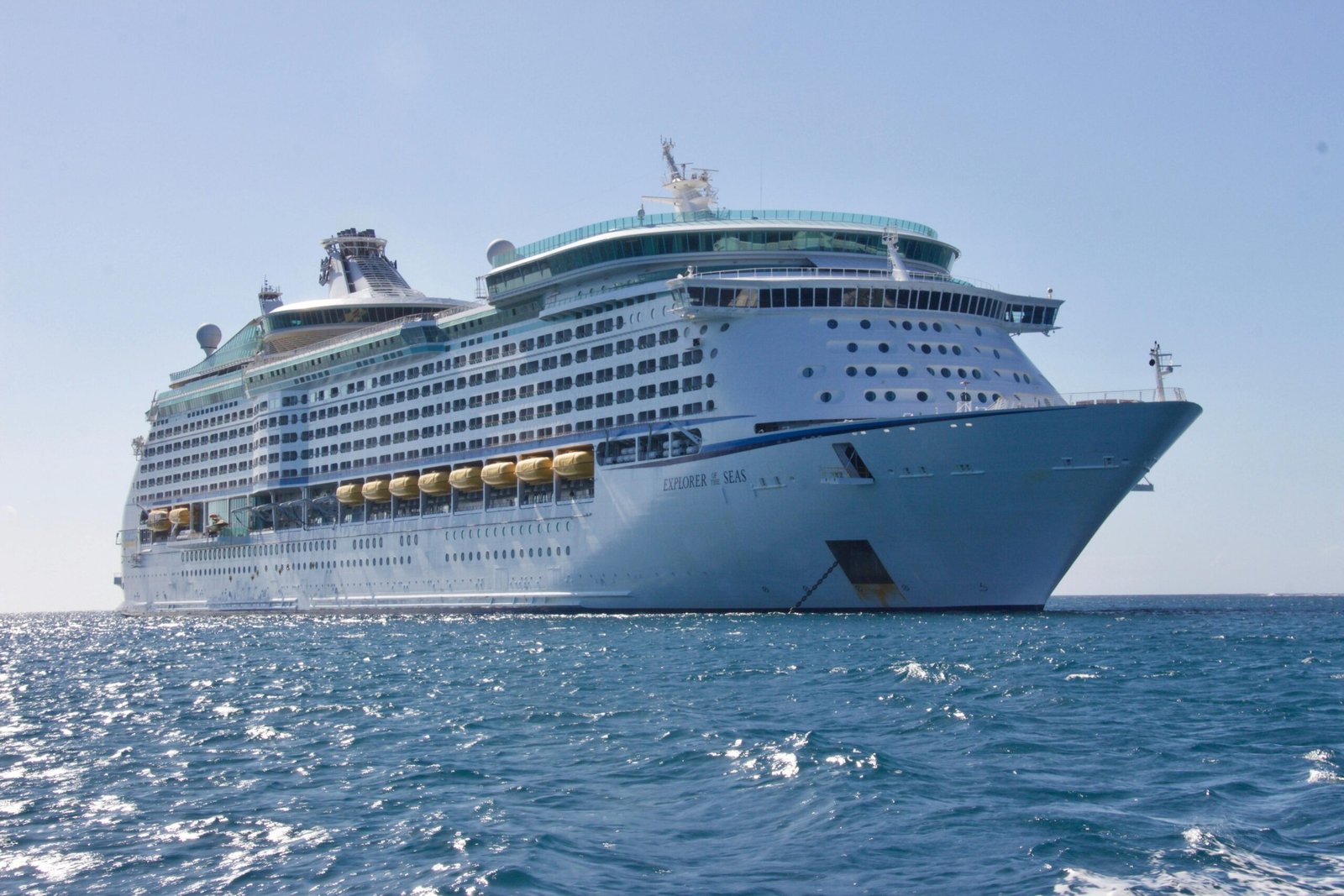Cruise Ship Paramedic
It’s a tough and exhilarating job as a cruise ship paramedic. You’ll get to travel the world, interact with individuals from diverse backgrounds, and respond to medical emergencies several hundred miles out to sea. And responsibility comes with the thrill. If you are a mature US or UK paramedic, this guide contains all that you require to become or evolve as a cruise ship paramedic.
What is a Cruise Ship Paramedic?
A paramedic cruise ship operates within the provision of medical care onboard ships. They attend to emergencies alongside routine health issues. Their use provides crew and travelers with quality suitable treatment on sea trips.
Some of their core responsibilities are:
- Providing medical emergencies onboard such as cardiac arrest, fractures, allergies, and trauma
- Offering treatment for immediate conditions such as seasickness, colds, infections, and minor injuries
- Helping medical processes on board by means of physicians
- Rendering evacuations if the situation is appropriate, tenders or helicopters
Rendering Medical Records and Reports Accurate
Teaching health habits, sanitation, and infection control to passengers and crewmen
They are an absolute bare necessity for ships heading for outlying areas where shore-based medical facilities are not readily available.
Why Cruise Ship Paramedics Are So Popular
There are several reasons why the market for medical staff serving on cruise ships is increasing:
- Safety and health policies force cruise companies to provide qualified medical staff.
- More cruise cruises and solo expeditions mean there is a need for emergency service at sea.
- Rising travelers’ expectations of health care service have done so.
- Medical risks such as viral outbreaks necessitate available and professional medical service onboard.
Qualifications and Requirements
When you train yourself to be a paramedic for a cruise ship, you are obligated to meet some education and career requirements.
For British candidates:
- Paramedic degree or diploma
- HCPC registration
- Other qualifications such as Immediate Life Support (ILS), Advanced Life Support (ALS), and Major Incident Medical Management
For American candidates:
- Certified EMT-Paramedic status
- National Registry of Emergency Medical Technicians (NREMT) license
- Advanced. Cardiovascular. Life. Support. (ACLS), Pediatric. Advanced. Life. Support. (PALS), Basic. Life. Support. (BLS)
Most cruise lines also require:
- Minimum of 3 years of current emergency or prehospital experience
- Excellent verbal and written communication skills
- Passport and global traveling abilities
- Clean medical history and background report
How to Become a Cruise Ship Paramedic
Certifications are only the bare minimum to become a cruise ship paramedic. Here’s step by step:
Gain Experience: 3+ years of EMS experience, specifically emergency room, ICU, or rural medical settings, is needed by most employers.
Attend Maritime Medical Courses: Certain cruise agencies or firms provide shipboard medicine courses. These range from infection control to evacuation and documentation aboard the ship.
Look for employment with Cruise Agencies or Cruise Lines: Carnival, Royal Caribbean, Disney Cruise Line, and MSC Cruises tend to post job vacancies on their career portal. Recruitment agencies specializing in the area also hire paramedics for offshore work.
Practice Interviews: Interviews might include scenario questions in emergency management on the ship or patient care without the luxuries of a full hospital.
Complete Onboarding and Ship Orientation: Once hired, you’ll undergo ship orientation, safety drills, and familiarization with medical protocols.
Salary and Benefits
- Cruise ship paramedics earn competitive, often tax-free salaries.
- US-based roles typically offer $4,000 to $6,500 per month.
- UK professionals can expect around £3,200 to £5,000 monthly.
Additional benefits often include:
- Free in-cabin accommodation and meals
- Foreign travel
- General insurance
- Uniforms and work attire
- Compensated training or re-certification
- Contract completion incentives
Working Conditions and Schedule
Employment aboard a cruise ship is significantly different from working on land. There are lengthy shifts that include weekends, nights, and holidays. On most cruises, paramedics:
- Work rotating shifts with night-on-call
- Live in shared or single cabin accommodation
- Have crew-only facilities like gyms, lounges, or recreation rooms
- Should be in a role of handling emergency cases day and night
Being out there on the water is isolating but eventually very satisfying. Esprit de corps among staff and the opportunity to be innovative on a regular basis often outweighed the downsides.

Essential Skills to be a Successful Cruise Ship Paramedic
- Extremely well-honed skill of making clinical judgments when under intense stress
- Effective communication skills with physicians, nurses, and non-medical personnel
- Skill to be culturally competent in providing treatment to multicultural patients
- Versatility to innovate with limited resources
- Electronic medical records (EMR) skills
- Preventive health care and public health education
Career Development Opportunities
Paramedics on cruise ships can move to senior medical roles at sea or on land. Some of the career development opportunities are:
- Senior lead paramedic or medical supervisor roles
- Health and safety training officer
- Maritime medicine consultant
- Emergency preparedness coordinator
Transition to career streams for occupational health or travel health
What to Expect in Emergencies at Sea
There are also cruise ships that have the most advanced medical equipment used in urgent care centers. Physicians, nurses, and paramedics are employed together in instances like:
- Cardiac arrests
- Food poisoning attacks
- Slip-and-fall accidents
- Burns and allergic reaction
- Mental illness
If a patient requires more advanced care, paramedics arrange air or port-side transfer evacuations. Coordination with shore-based response teams and shoreside hospitals is essential.
Life Onboard: A Day in the Life
Every day is different. You can begin the day with morning patient follow-ups, safety reports throughout the day, and conclude the night by responding to an emergency call.
After work hours, crew members are able to utilize:
- Spa and gym facilities (staff-only hours)
- Staff-arranged events and theme nights
- Shore excursions at a reduced cost (when time permits)
It’s a blend of challenging medical work and existence on a floating metropolis with culture, cuisine, and comforts.
Cruise Ship Paramedic vs. Ship Nurse
Paramedics are trained in acute, pre-hospital care—stabilizing trauma patients, treating cardiac arrest, and dealing with high-energy surroundings. Nurses are focused on longer-term care, disease management, drug administration, and assisting doctors in procedures.
- Both supplement and complement an effective onboard medical team.
- Top Tips for Future Cruise Ship Paramedics
- Stay up to date with renewals and certifications
- Learn international health diseases and procedures
- Scenario practice that requires medical improvisation
- Learn some foreign language phrases so that you can communicate with foreign visitors
- Attend maritime medicine conferences for networking and information sharing

Frequently Asked Questions
Minimum experience?
Most cruise lines require 3 or more years of EM experience.
Can I substitute paramedic experience onboard a vessel for hospital experience?
Field EMS experience is generally sufficient, but emergency or trauma experience is preferred.
Do I require a passport?
Yes.
Is the job seasonal?
Some routes are seasonal, but most cruise vessels operate year-round.
Can UK paramedics work for US cruise operators?
Yes, as long as they are awarded equivalent qualifications (i.e., NREMT) and adhere to US visa/work regulations.
Are couple opportunities?
Rarely. Cruise ships do not utilize couples due to limited cabin sharing and HR having some limitations.
Can I have relatives aboard?
In most instances, no. You may only have family members with you on board for extremely senior roles.
What is the risk?
You could be subjected to seasickness, loneliness, stress in the event of an emergency, or contact with disease. All of these dangers are eliminated through proper training and assistance.
Conclusion: Is This Career Right for You?
It’s not for everyone, being a cruise ship paramedic—but if you have an affinity for adventure, excel in emergency medicine and are at ease working multicultural environments, it may be your dream job. It offers a combination of clinical excellence and international travel that few health care careers can equal.
With certification, education, and passion for health care, you can set your sights on a career that’s as memorable as it is rewarding.
Off to sea she goes. Begin by tidying up your CV, studying naval recruiters, and rehearsing life on the high seas as a cruise ship paramedic.
